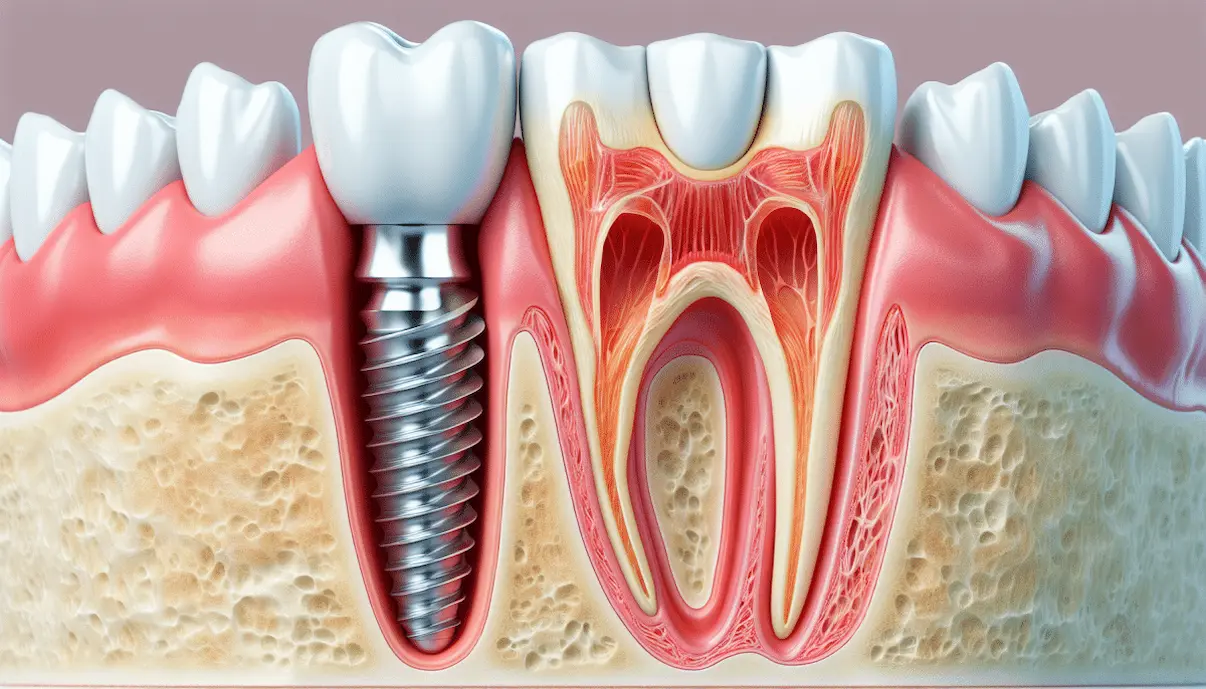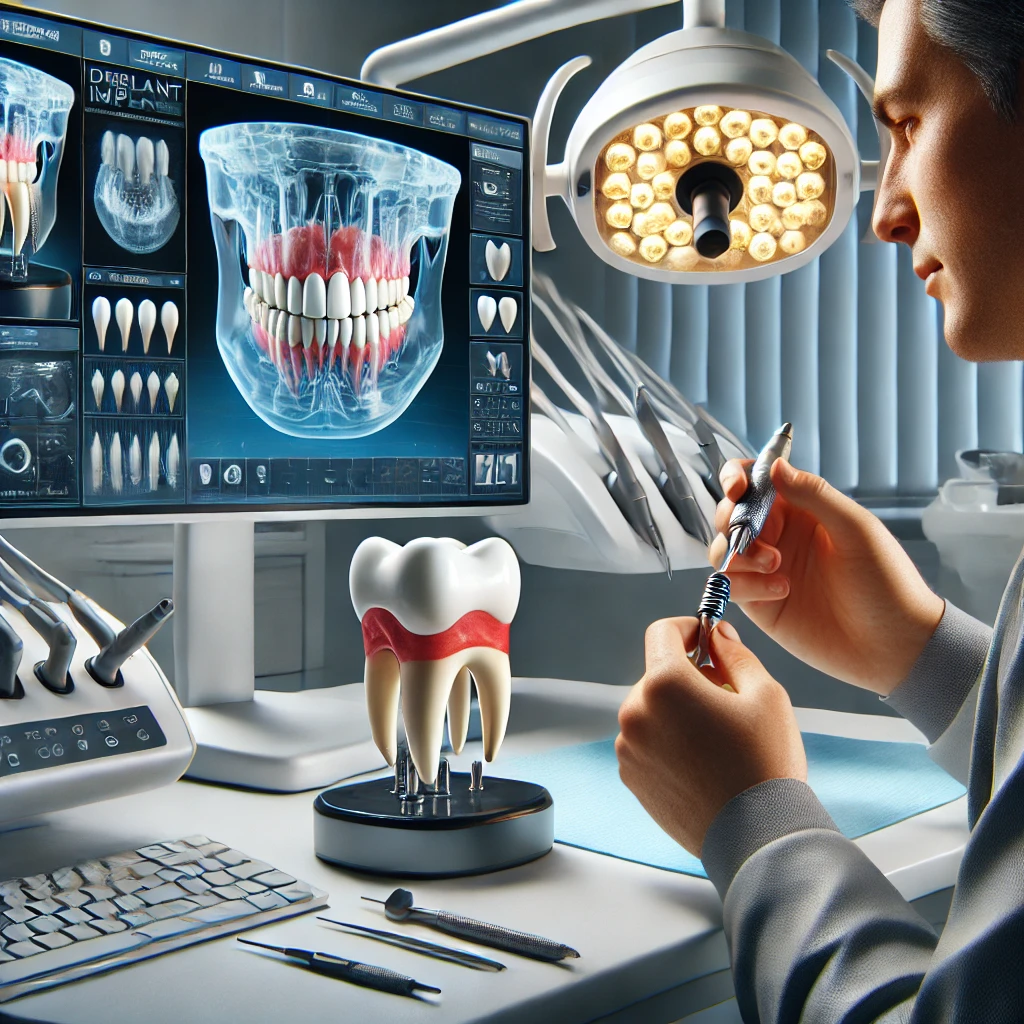Understanding the Lifespan of Dental Implants

Dental implants are a transformative solution for individuals seeking a permanent way to replace missing teeth. Known for their durability and natural appearance, implants have become a popular choice. However, understanding the dental implant lifespan is essential to maximizing its benefits and ensuring they remain a long-term solution for your oral health.
What Are Dental Implants?
Dental implants are artificial tooth roots, typically made from titanium, that are surgically placed into the jawbone. They serve as a sturdy foundation for crowns, bridges, or dentures, making them a reliable and aesthetically pleasing option for tooth replacement.
How Long Do Dental Implants Last?
On average, the dental implant lifespan ranges from 10 to 30 years, with many lasting a lifetime when cared for properly. However, the prosthetic components, such as crowns or bridges attached to the implant, may require replacement after about 10–15 years due to natural wear and tear.

Factors Affecting Dental Implant Longevity
The longevity of dental implants depends on several key factors:
1. Oral Hygiene Practices
Consistently practicing good oral hygiene is vital. Brushing, flossing, and using antibacterial mouthwash daily prevent plaque buildup that could lead to gum disease and compromise the implant’s success.
2. Lifestyle Habits
Habits like smoking and frequent alcohol consumption can negatively impact the lifespan of dental implants. Smoking, in particular, reduces blood flow to the gums, hindering the healing process and increasing the risk of complications.
3. Bone Health and Support
Strong, healthy jawbone tissue is crucial for supporting dental implants. Bone loss from untreated gum disease or conditions like osteoporosis can destabilize the implant.
4. Regular Dental Checkups
Routine visits to the dentist help monitor the condition of your implants and address potential issues early. Professional cleaning and evaluations play a significant role in ensuring implants remain functional.
5. Dietary Choices
A balanced diet rich in nutrients that support oral health can strengthen the bone and gum tissue surrounding your implant. Avoid chewing hard substances like ice or hard candies, which can damage the prosthetic components.
6. Expertise of Your Dental Professional
The skills and experience of your dental surgeon significantly affect the success rate and longevity of your implants. Proper placement and advanced techniques reduce risks and ensure better outcomes.

Common Indicators of Implant Problems
Though dental implants are highly reliable, occasional complications can arise. Look out for:
-
✓ Persistent pain or discomfort.
-
-
✓ Swelling or inflammation around the implant site.
-
-
✓ Looseness of the implant or attached prosthetics.
-
-
✓ Difficulty chewing or changes in bite alignment.
-
-
Promptly addressing these issues with your dentist can prevent further complications.
-
Tips for Prolonging the Life of Dental Implants
1. Stick to a Strong Oral Hygiene Routine
Brushing twice a day, flossing daily, and using tools like water flossers can keep your implants clean and free of plaque.
2. Avoid Harmful Habits
Stop smoking and minimize habits like teeth grinding or using your teeth as tools to open packaging, as they can stress your implants.
3. Use a Mouthguard When Necessary
If you grind your teeth or play contact sports, a custom-fitted mouthguard can protect your implants and natural teeth from excessive force.
4. Stay Consistent With Dental Visits
Regular checkups help your dentist monitor your implants and address potential issues early, ensuring long-term success.

Technological Advancements in Implant Dentistry
Recent advancements in dental technology, including 3D imaging and guided implant surgery, have significantly improved the precision and success rates of dental implants· High-quality materials and innovative techniques contribute to longer-lasting implants, giving patients greater confidence in their choice.
Why Dental Implants Are Worth It
While dental implants may involve a higher initial cost than other tooth replacement options, their longevity and functionality make them a worthwhile investment. They provide a secure, natural-looking solution that restores your smile and oral function, often lasting a lifetime with proper care.
Conclusion
The dental implant lifespan is influenced by a combination of factors, including oral hygiene, lifestyle habits, and professional care. By following a consistent oral care routine, maintaining a healthy lifestyle, and attending regular dental appointments, you can enjoy the benefits of dental implants for decades.
If you’re considering dental implants or need guidance on their maintenance, consult a qualified dental professional. With the right approach; dental implants can provide you with a confident and healthy smile for years to come.
Articles are reviewed by Dr. Arab gum surgeon and periodontologist. This information is for educational purposes only. This content is not intended to be a substitute for professional medical advice, diagnosis or treatment. Always seek advice from your dentist, doctor or other qualified health care provider.
Please let us know what you think!